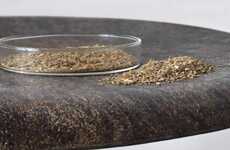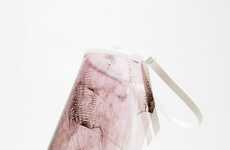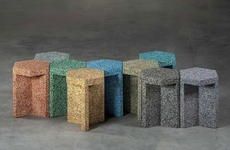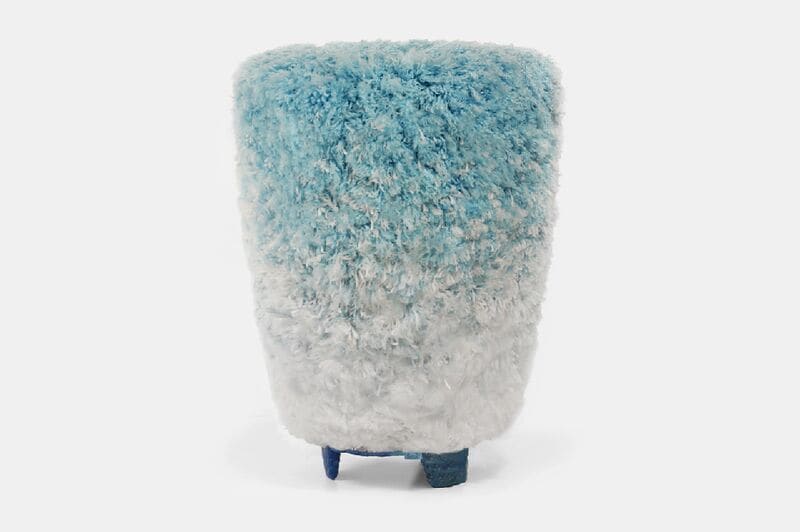
The Veil Stool is Made by Joe Slatter from Recycled Face Masks
Elena Rahman — July 8, 2021 — Eco
References: behance.net & yankodesign
The Veil Stool is the brainchild of UK-based designer Joe Slatter. The white and blue stool is made from discarded face masks found along the streets of London as litter. While the blue and white protective equipment has become an unofficial icon of the pandemic era, the trouble is that they are commonly found in piles of litter on street corners or floating in marine debris.
Slatter collected 4,000 masks across the city and disinfected them by coating them in ozone spray. They were then left in direct sunlight for four weeks to finalize the sanitization process. Once complete, Slatter spun the 3-ply masks into a soft yarn and melted it down into a dense polypropylene structure to create the Veil Stool.
Image Credit: Yanko Design
Slatter collected 4,000 masks across the city and disinfected them by coating them in ozone spray. They were then left in direct sunlight for four weeks to finalize the sanitization process. Once complete, Slatter spun the 3-ply masks into a soft yarn and melted it down into a dense polypropylene structure to create the Veil Stool.
Image Credit: Yanko Design
Trend Themes
1. Sustainable Upcycling - Using discarded face masks to create furniture and other items presents an opportunity for businesses to participate in eco-friendly and sustainable practices
2. Waste Management - With the increase of PPE waste, there is an opportunity for businesses to come up with innovative solutions for waste management and repurposing
3. Circular Economy - Repurposing discarded face masks into new products is an opportunity to create a circular economy, where waste is turned into something of value
Industry Implications
1. Furniture Design - Designers and manufacturers can innovate in the furniture industry by exploring the use of unconventional materials, such as recycled PPE, and create unique and eco-friendly products
2. Waste Management - Businesses specializing in waste management can capitalize on the increased demand for effective and sustainable ways to handle discarded PPE, such as developing new recycling programs and technologies
3. Textile Production - The repurposed face mask trend presents an opportunity for the textile industry to experiment with new materials and recycling processes, and produce eco-friendly and cost-effective textiles
5.3
Score
Popularity
Activity
Freshness
























